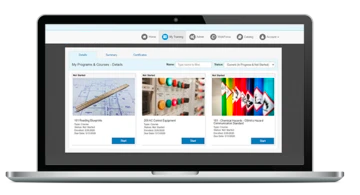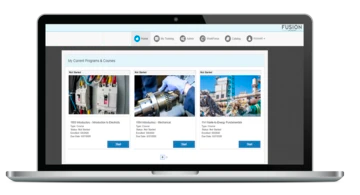Researchers from the Princeton-based Educational Testing Service (ETS) recently administered an international test to working-aged adults in 23 countries to measure competency levels of key job skills required by most employers. The test titled Program for the International Assessment of Adult Competencies' (PIAAC) revealed that U.S. adults are far behind many other nations in applying very basic job skills like following simple instructions and problem solving in technology rich environments. Much of the focus falls on millennials, individuals reaching adulthood around the year 2000. An analysis published throughout AMERICA’S SKILLS CHALLENGE: MILLENNIALS AND THE FUTURE discovered that millennials are often way behind in these key areas, scoring well below the overall average. Believed to be the highest educated generation to date1, and just recently the most populous2, millennials from all academic achievement levels aren’t delivering on-the-job skills needed in today’s industrial climate. This is the generational workforce of our future.

The report pinpoints key observations about the millennial skill-set:
– "Among all countries, there was a strong relationship between parental levels of educational attainment and skills; across all levels of parental educational attainment, there was no country where millennials scored lower than those in the United States."1– "The gap in scores between U.S. millennials with the highest level of parental educational attainment and those with the lowest was among the largest of the participating countries."1
– "In most countries, native-born millennials scored higher than foreign-born millennials; however, native-born U.S. millennials did not perform higher than their peers in any other country."1
*Test your basic job skills by taking the whole PIAAC test here:
In recent years, the U.S. government has increased national spending on education but a recent ETS report suggests that more education might not be the only solution to our deficiencies. How we educate is just as important as the knowledge itself. Many employers have begun proactively addressing the education of their employees by personally preparing them for the demands of the job. Whether they are aligning entire workforces to a common set of standards or partnering with schools to help fill the pipeline of potential future technicians, companies are taking the initiative to develop job-training programs specific to their workforce environment.
For example, companies like Exxon-Mobile are in great demand in the Gulf region as reliable welders are needed to work in petrochemical plants and on pipelines. To prepare their workforce to meet these demands, Exxon-Mobile has fostered close relationships between academia and industry to re-cultivate tried and true training methods like apprenticeship programs.
The future industrial workforce funnel is failing to fill. Can your business afford to wait for a job-ready workforce to emerge?
References:
1 http://www.ets.org/s/research/30079/overview.html
2 http://www.washingtonpost.com/blogs/the-fix/wp/2014/05/27/the-millennials-have-taken-over-but-dont-expect-politics-to-change-just-yet
3 http://www.nytimes.com/2015/03/11/business/economy/as-demand-for-welders-resurges-community-colleges-offer-classes.html?partner=rss&emc=rss&_r=1
4 http://fortune.com/2015/03/10/american-millennials-are-among-the-worlds-least-skilled/






Comments
Sorry, no comments found for this article